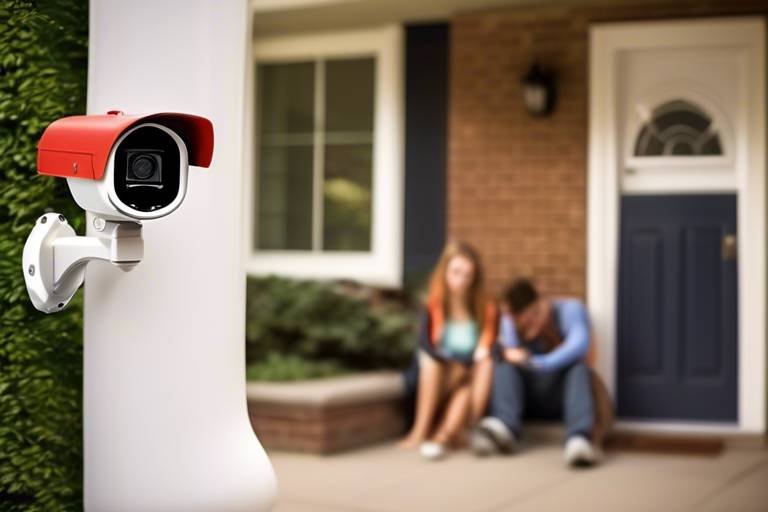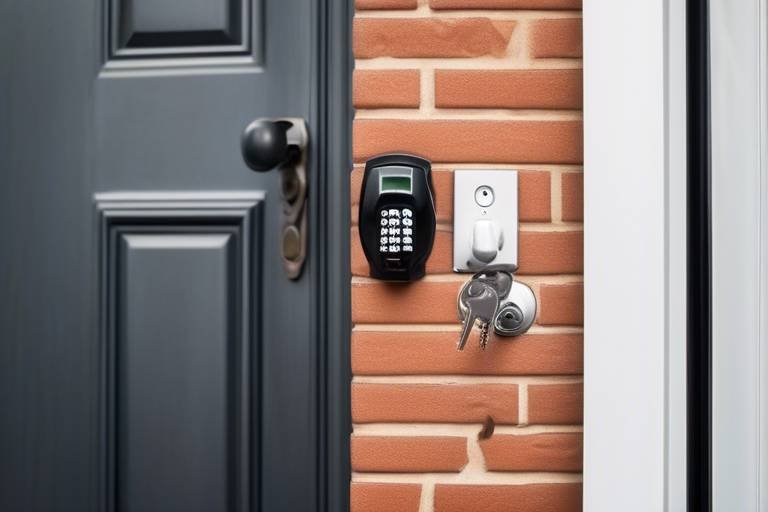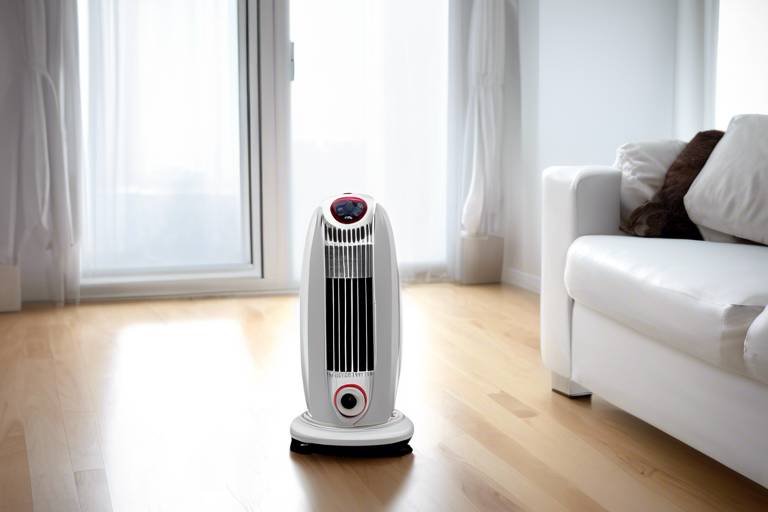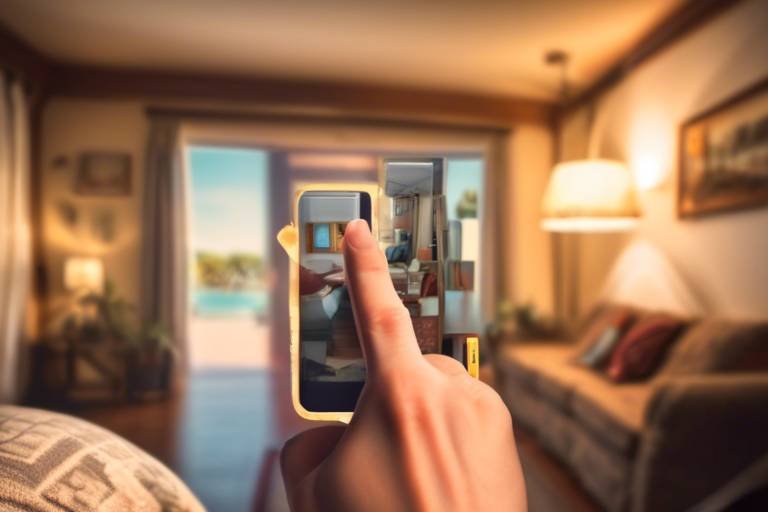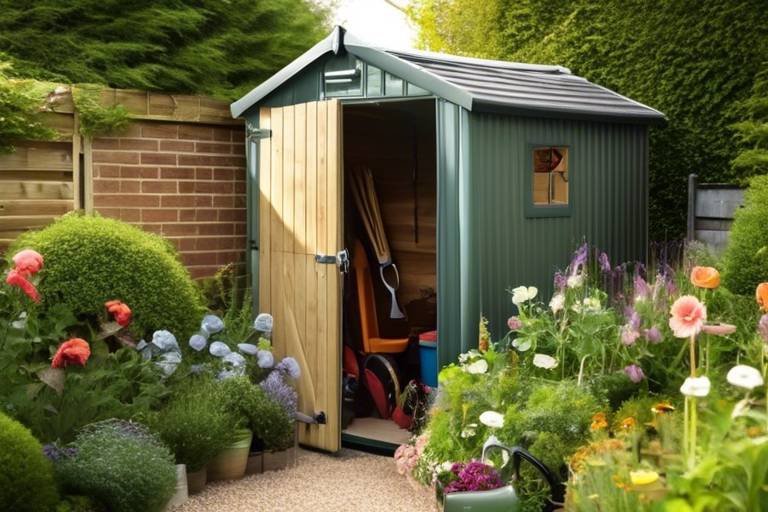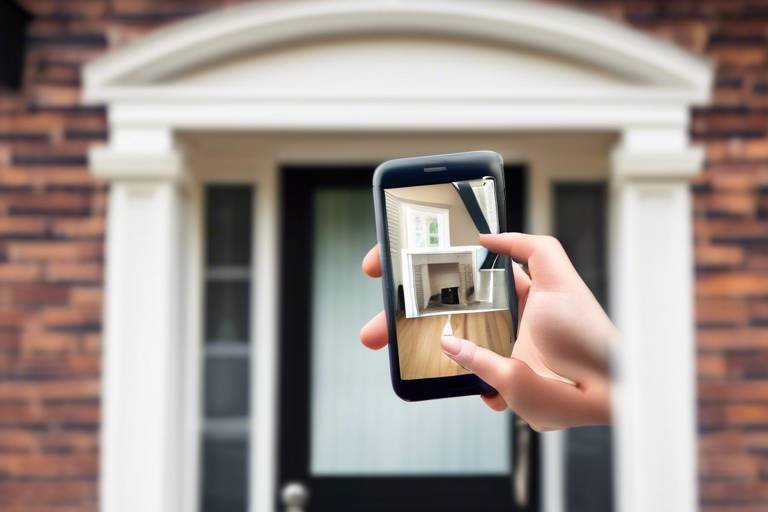Home Security Tips for Students Living Off Campus
As a student living off campus, you’re stepping into a world of independence and new experiences. However, with that freedom comes the responsibility of ensuring your safety and security. This article provides essential home security tips tailored for students living off campus, ensuring their safety and peace of mind while pursuing their studies in a new environment. From understanding the basics of home security to utilizing technology and building relationships with neighbors, we’ll cover everything you need to know to create a secure living space.
Familiarizing yourself with fundamental home security concepts is crucial for effective protection. Think of your home as a fortress; every fortress has its defenses. The first step is to understand the basic principles of home security. These include:
- Awareness: Be aware of your surroundings and any unusual activity.
- Prevention: Take proactive measures to deter potential intruders.
- Response: Know how to react in case of a security breach.
By grasping these concepts, you’ll be better equipped to identify vulnerabilities in your living space and take the necessary steps to enhance your safety.
Selecting a secure neighborhood is vital for students. When searching for a rental property, consider the following factors to assess the safety of potential areas:
- Crime Rates: Research local crime statistics to gauge the safety of the neighborhood.
- Lighting: Well-lit streets and properties deter criminal activity.
- Community Engagement: A community that looks out for one another is often safer.
Finding a secure location is like choosing the right foundation for a house; it sets the stage for everything that follows.
Ensuring all entry points are secure is a priority. The doors and windows are your first line of defense, so make sure they are up to par. Consider these effective measures to reinforce them:
- Deadbolts: Install deadbolts on all exterior doors for added security.
- Window Locks: Ensure all windows have functioning locks and consider adding security bars for extra protection.
- Door Jammers: Use door jammers or wedges to prevent forced entry.
By taking these steps, you can significantly reduce the risk of unauthorized access to your home, making it a safer haven for your studies.
Incorporating technology can significantly bolster home security. Smart home devices are not just trendy; they can also provide peace of mind. Consider investing in:
- Smart Cameras: These allow you to monitor your home remotely via your smartphone.
- Smart Doorbells: They can alert you to visitors and potential intruders.
- Home Security Apps: These apps can help you control your devices and receive alerts in real-time.
Think of technology as your personal security guard, always on alert and ready to notify you of any suspicious activity.
Building a sense of community is essential for safety. Establishing a neighborhood watch program can create a supportive network among residents. Here’s how you can get involved:
- Organize Meetings: Gather neighbors to discuss safety concerns and strategies.
- Share Information: Keep each other informed about suspicious activities.
- Collaborate: Work together to create a safer environment.
A strong community is like a well-knit fabric; it’s resilient and protective against threats.
Being prepared for emergencies is crucial for any student. Create an emergency plan that includes:
- Escape Routes: Know multiple ways to exit your home in case of fire or intrusion.
- Emergency Contacts: Have a list of contacts readily available for quick access.
- Safety Kit: Assemble a safety kit with essentials like first-aid supplies, flashlights, and non-perishable food.
Think of your emergency plan as your safety net; it’s there to catch you when things go wrong.
Understanding insurance options is key to protecting personal belongings. Renter's insurance is often overlooked but can be a lifesaver in case of theft or damage. When choosing a policy, consider:
- Coverage Limits: Ensure the policy covers the full value of your belongings.
- Liability Protection: Look for policies that include liability coverage in case of accidents.
- Discounts: Ask about discounts for safety features like security systems.
Having renter's insurance is like having a safety blanket; it provides comfort knowing you’re protected against unforeseen events.
Fostering good relationships with neighbors can enhance security. When you know the people living around you, it creates a sense of community where everyone looks out for one another. Simple gestures like:
- Introducing Yourself: A friendly hello can go a long way.
- Exchanging Contact Information: Share numbers for quick communication.
- Organizing Social Events: Create opportunities to connect and build trust.
Building these relationships is like creating a safety net; the stronger the connections, the safer you’ll feel.
Being aware of local crime trends is crucial for safety. Stay informed by:
- Following Local News: Keep up with news reports and updates in your area.
- Joining Community Groups: Engage in local forums or social media groups focused on safety.
- Participating in Neighborhood Meetings: Attend meetings to discuss safety issues and solutions.
Staying informed is like having a radar; it helps you detect potential dangers before they become threats.
Q: What should I do if I feel unsafe in my neighborhood?
A: Trust your instincts. If you feel unsafe, consider reaching out to local authorities or seeking advice from neighbors. It’s always better to be cautious.
Q: Is renter's insurance really necessary?
A: Yes! Renter's insurance protects your belongings from theft or damage, providing peace of mind while you focus on your studies.
Q: How can I get involved in a neighborhood watch program?
A: Start by talking to your neighbors about safety concerns and express your interest in forming a watch program. You can also reach out to local law enforcement for resources.
Q: What are some affordable security measures I can implement?
A: Simple measures like installing window locks, using door jammers, and investing in smart lighting can enhance your security without breaking the bank.

Understanding Home Security Basics
When it comes to home security, understanding the basics can make all the difference between feeling safe and being vulnerable. Imagine your home as a fortress; every fortress has its defenses, and yours should too! Whether you’re living in a cozy apartment or a shared house, knowing the fundamental principles of security can help you create a protective barrier around your living space. First and foremost, it’s essential to recognize that most break-ins happen through unlocked doors and windows. This simple fact underscores the need for vigilance and routine checks.
One of the key concepts to grasp is the idea of layered security. Think of it like an onion; the more layers you have, the harder it is to penetrate. Start with the most obvious layer: securing your doors and windows. Invest in solid locks and consider adding deadbolts for that extra peace of mind. But don’t stop there! The next layer could be outdoor lighting; well-lit areas deter potential intruders. A motion-sensor light can be a game changer, illuminating any suspicious movement around your property.
Another vital aspect of home security is awareness of your surroundings. This means not only being conscious of who’s coming and going but also understanding the local environment. Are there any dark alleys nearby? Is the neighborhood known for having a high crime rate? Being aware can help you make informed decisions about your living situation. Additionally, consider getting to know your neighbors. A friendly wave can go a long way, and having a network of people looking out for each other can significantly enhance your security.
Let’s not forget about technology—the modern-day knight in shining armor! Smart home devices can play a pivotal role in keeping your space secure. For instance, security cameras can be a deterrent for would-be thieves. You can even set them up to send alerts to your phone whenever there’s movement detected. This way, you can keep an eye on your property, even when you’re miles away. Moreover, alarm systems that are linked to your phone can provide real-time updates and peace of mind.
To wrap it all up, understanding home security basics is about creating a comprehensive plan that includes physical security measures, environmental awareness, and the use of technology. By layering your security and staying alert, you can transform your living space into a safe haven. Remember, the goal isn’t just to prevent break-ins; it’s about fostering a sense of safety and community. So, take these basics to heart, and you’ll be well on your way to enjoying your off-campus living experience without worry!
- What are the most common security risks for students living off-campus?
Common risks include unlocked doors and windows, lack of outdoor lighting, and unfamiliar neighborhoods. Awareness and preventative measures can significantly reduce these risks.
- How can I improve my home security on a budget?
Simple measures like installing deadbolts, using window locks, and adding motion-sensor lights can enhance security without breaking the bank.
- Are smart home devices worth the investment?
Absolutely! Smart devices like cameras and alarms can provide real-time monitoring and alerts, making them a valuable investment for peace of mind.

Choosing the Right Location
When it comes to finding a place to live off-campus as a student, the location is everything. Imagine this: you’ve just aced your finals, and you want to unwind, but the last thing you need is to worry about your safety. Choosing the right neighborhood can make all the difference in your college experience. So, how do you determine which area is safe and suitable for your lifestyle? Let’s dive into some key factors to consider!
First and foremost, **do your research**. Spend some time online checking out crime statistics in potential neighborhoods. Websites like NeighborhoodScout or your local police department’s website can provide valuable insights into crime rates. You might also want to check out community forums or social media groups where locals discuss safety. It’s like getting the inside scoop before making a big decision!
Next, **take a stroll** through the neighborhood at different times of the day. You want to get a feel for the area when the sun is shining and when it’s dark. Are there people out and about? Are the streets well-lit? A neighborhood that feels vibrant during the day but eerily quiet at night might raise a few red flags. Additionally, observe the presence of other students. If you see plenty of young adults around, it’s a sign that the area is likely to be student-friendly and safe.
Another essential factor is the **proximity to campus and essential services**. You want to live somewhere that’s not just safe but also convenient. Consider how far you’ll have to travel for classes, grocery shopping, and other daily necessities. A short commute can save you time and reduce stress, allowing you to focus more on your studies and less on logistics. Here’s a quick table to help you weigh the pros and cons of location:
| Factor | Pros | Cons |
|---|---|---|
| Proximity to Campus | Shorter commute, more time for studies | Higher rent in popular areas |
| Safety | Peace of mind, less stress | May require more research |
| Access to Amenities | Convenience, social opportunities | Potential noise or traffic |
Finally, don’t underestimate the value of **talking to locals**. Strike up conversations with shop owners or other residents about the neighborhood. They can provide insights that you won’t find online. Plus, you might even make some new friends along the way! Remember, your living environment can significantly impact your overall college experience, so take the time to choose wisely.
In conclusion, when selecting your off-campus home, think beyond just the rent and amenities. Your safety and comfort should be your top priorities. By researching crime rates, exploring the area, considering convenience, and engaging with the community, you can find a location that feels just right. After all, a happy home is a happy student!

Securing Entry Points
When it comes to home security, one of the most critical aspects is ensuring that all entry points to your living space are as secure as possible. Think of your home as a fortress; if the walls are weak, it doesn’t matter how strong the rest of your defenses are. The first line of defense often starts with doors and windows, and students living off-campus should prioritize fortifying these access points to reduce the risk of unauthorized entry.
First and foremost, let’s talk about doors. A solid door is your best friend when it comes to security. Look for doors made from solid wood or metal, as these materials are significantly harder to breach than hollow-core doors. Additionally, don’t overlook the importance of the door frame; a sturdy frame can withstand more force and deter potential intruders. Consider adding a deadbolt lock to your door. Deadbolts are much more secure than standard doorknob locks, providing an extra layer of protection. You might also want to invest in a door viewer or peephole, allowing you to see who is outside before opening the door.
Next up, let’s discuss windows. Many people forget that windows can be a weak spot in home security. To enhance your safety, install window locks that are sturdy and reliable. If your windows are on the ground floor, consider using window security film, which makes glass harder to break. For those who want to take it a step further, installing security bars can provide an additional barrier of protection. However, ensure that they can be easily opened from the inside in case of an emergency.
It’s also important to be mindful of sliding doors, often found in apartments or homes with patios. These doors can be particularly vulnerable, so make sure they are equipped with a strong lock. A simple yet effective trick is to place a wooden dowel or a metal rod in the track of the sliding door. This prevents it from being opened even if the lock is compromised. Additionally, consider using a security sensor or alarm on sliding doors; these devices can alert you if someone tries to tamper with them.
Another essential tip is to keep your entry points well-lit. A well-lit exterior can deter potential intruders, making them think twice before approaching your home. Motion-activated lights are a great option, as they only turn on when movement is detected. This not only saves energy but also adds an element of surprise for anyone lurking around your property.
Finally, remember to regularly check and maintain your entry points. Make it a habit to inspect your locks, hinges, and overall door and window condition. If something seems off, it’s better to address it sooner rather than later. By taking these proactive steps, you can significantly enhance your home’s security and enjoy peace of mind while living off-campus.

Utilizing Technology for Security
In today's digital age, the integration of technology into our daily lives has transformed how we approach home security. For students living off campus, leveraging these advancements can significantly enhance safety and provide peace of mind. Imagine being able to monitor your living space from anywhere, at any time, with just a few taps on your smartphone. Sounds like a dream, right? Well, it’s a reality thanks to smart home devices and applications designed specifically for security.
One of the most effective ways to bolster your home security is by installing smart security cameras. These devices not only allow you to keep an eye on your surroundings but also come equipped with motion detection and night vision features. You can receive real-time alerts on your phone if any movement is detected, giving you an extra layer of protection. Additionally, many cameras offer cloud storage options, enabling you to review footage whenever necessary. This can be especially useful for students who may be away from their homes for extended periods.
Another fantastic tool for enhancing security is the smart doorbell. These innovative devices allow you to see who is at your door without having to open it. With features like two-way audio, you can communicate with visitors from anywhere, whether you’re in class or at a coffee shop. This not only deters potential intruders but also ensures that you only allow trusted individuals into your home. Imagine receiving a package while you’re out; with a smart doorbell, you can instruct the delivery person on where to leave it safely.
Furthermore, consider investing in smart locks. These locks eliminate the need for physical keys, which can be easily lost or stolen. Instead, you can use your smartphone to lock and unlock your door. Some smart locks even allow you to provide temporary access codes to friends or family, ensuring that you have control over who enters your space. This feature is particularly beneficial for students who may have roommates or frequent visitors.
To tie all these devices together, utilizing a home automation system can streamline your security measures. Systems like Google Home or Amazon Alexa can connect various devices, allowing you to control everything from lights to locks with voice commands or through a single app. This integration not only simplifies your daily routine but also enhances your overall security. For instance, you can set your lights to turn on and off at specific times, creating the illusion that someone is home even when you’re away.
Lastly, don’t forget about the importance of security apps. Many security systems come with dedicated apps that allow you to monitor your home remotely. These apps can provide you with live feeds from your cameras, alerts for unusual activities, and even the ability to lock your doors from anywhere. By keeping your devices updated and regularly checking your app, you can stay one step ahead of potential threats.
In conclusion, utilizing technology for security is not just a trend; it's a necessity for students living off campus. By incorporating smart devices and home automation systems into your living space, you can create a secure environment that allows you to focus on your studies without worrying about your safety. Remember, it’s all about making informed choices and leveraging the tools available to you in this tech-savvy age.
- What are the best smart security cameras for students? Look for options that offer high-definition video, night vision, and cloud storage. Brands like Ring and Arlo are popular choices among students.
- Are smart locks safe? Yes, smart locks can be very secure, especially those that use encryption and offer features like two-factor authentication.
- Can I use my smartphone to control all my security devices? Absolutely! Most smart security devices come with apps that allow you to manage everything from your phone.

Establishing a Neighborhood Watch
Establishing a Neighborhood Watch is not just about keeping an eye on each other; it's about building a sense of community and fostering a safe environment for everyone, especially for students living off-campus. Imagine walking through your neighborhood, feeling not just like a visitor but a valued member of a close-knit community. That’s the power of a neighborhood watch! By banding together, you and your neighbors can create a supportive network that enhances safety and security.
So, how do you get started? First, it's essential to gather interested residents. This can be as simple as chatting with your neighbors during a casual meet-up or organizing a small gathering. Once you have a group, discuss the specific needs and concerns of your neighborhood. Are there areas that feel less safe? Have there been recent incidents that raised alarms? Open communication is key here.
Next, consider setting up regular meetings. These gatherings can serve as a platform for sharing information, discussing safety tips, and even planning community events. You might want to establish a communication system—this could be a group chat, email list, or even a social media group where everyone can share updates and alerts. Remember, the goal is to keep everyone informed about any suspicious activities or safety concerns.
Another important aspect of a neighborhood watch is to collaborate with local law enforcement. Invite a police officer to one of your meetings. They can provide valuable insights on crime trends in your area and offer advice on how to keep your home and belongings safe. Building a relationship with law enforcement can also encourage quicker responses to any incidents that may arise.
Don't forget to promote the watch program! Use flyers, social media, or community bulletin boards to spread the word. The more people involved, the stronger the network becomes. Consider organizing community events, such as safety workshops or neighborhood clean-up days, to engage more residents and encourage participation. A vibrant community is a safe community!
In addition, it's essential to establish clear guidelines for the neighborhood watch. This includes defining what constitutes suspicious behavior and how to report it. Here’s a quick overview of what to consider:
| Guideline | Description |
|---|---|
| Observation | Encourage members to observe and report unusual activities without confronting individuals. |
| Communication | Set up a system for reporting suspicious activity to the group and local police. |
| Involvement | Encourage participation in community events to foster relationships among neighbors. |
Finally, remember that the success of a neighborhood watch relies heavily on the commitment of its members. Regularly review the program's effectiveness and make adjustments as needed. Celebrate successes, whether it’s a decrease in crime or simply a stronger sense of community. After all, a neighborhood watch is as much about building relationships as it is about security.
In conclusion, establishing a neighborhood watch can significantly enhance the safety of students living off-campus. By working together and fostering a sense of community, you'll not only protect your homes but also create a welcoming environment that makes off-campus living a positive experience. So, gather your neighbors, start the conversation, and take that first step toward a safer neighborhood!
- What is a Neighborhood Watch? A Neighborhood Watch is a community-based program where residents collaborate to monitor and report suspicious activities to enhance safety.
- How do I start a Neighborhood Watch? Gather interested neighbors, set up regular meetings, establish communication channels, and collaborate with local law enforcement.
- Is there a cost associated with starting a Neighborhood Watch? Generally, there are no formal costs, but you may choose to invest in promotional materials or community events.
- Can a Neighborhood Watch prevent crime? While it may not eliminate crime entirely, a Neighborhood Watch can deter criminal activities and enhance community safety.

Emergency Preparedness
When it comes to living off-campus, being prepared for emergencies is not just a good idea; it’s essential. Imagine this: you’re studying late at night, and suddenly, a loud crash interrupts your focus. Panic sets in, and your mind races with questions. What should you do? Where should you go? This is why having a solid emergency plan in place can be a game-changer. It’s like having a safety net that you can rely on when things go awry.
First and foremost, you need to create an emergency plan. This plan should outline what to do in various situations, such as a fire, a break-in, or even a natural disaster. Think of it as your roadmap to safety. Sit down and discuss with your roommates or housemates about the best escape routes from your home and establish a meeting point outside where everyone can gather. This way, if something happens, you won’t be scrambling to figure out what to do.
Next, assemble an emergency kit. This kit should be easily accessible and contain all the essentials you might need in case of an emergency. Here’s a quick list of items to consider including:
- First aid supplies
- Flashlight and extra batteries
- Non-perishable food items
- Water (at least one gallon per person per day for three days)
- Whistle to signal for help
- Multi-tool or Swiss Army knife
- Personal documents (ID, insurance info, etc.)
Having these items on hand can mean the difference between chaos and calm during a crisis. You wouldn’t want to be rummaging through drawers looking for a flashlight when the lights go out, right? Instead, everything should be neatly packed in a backpack or a dedicated container that’s easy to grab and go.
Moreover, don't forget about communication. Establish a group chat or a way to contact each other quickly in case of an emergency. It’s like having a digital lifeline that can keep everyone informed and connected. You could also include a list of important phone numbers in your emergency kit, such as local emergency services, a trusted neighbor, and family contacts.
Lastly, take the time to familiarize yourself with local emergency resources. Know where the nearest hospital is, the location of the nearest police station, and any emergency shelters in your area. This knowledge can provide peace of mind, knowing you have options should an emergency arise. Think of it as being a well-prepared scout—you’ll always be ready for whatever comes your way!
In summary, emergency preparedness is about being proactive rather than reactive. By having a solid plan, an accessible emergency kit, effective communication, and knowledge of local resources, you can ensure that you and your roommates are ready to handle any situation that might come your way. Remember, safety first!
Q: What should I include in my emergency kit?
A: Your emergency kit should include first aid supplies, a flashlight, non-perishable food, water, a whistle, a multi-tool, and personal documents.
Q: How do I create an effective emergency plan?
A: Discuss with your roommates to establish escape routes, a meeting point, and communication methods in case of an emergency.
Q: Where can I find local emergency resources?
A: You can find local emergency resources by searching online or contacting your local government office for information on hospitals, police stations, and emergency shelters.

Insurance Considerations
When it comes to living off-campus, one of the most important yet often overlooked aspects of home security is insurance. As a student, you might think that your belongings are safe and sound, but the reality is that accidents and theft can happen at any time. This is where understanding renter's insurance becomes crucial. Renter's insurance is designed to protect your personal property in the event of theft, fire, or other disasters. It can also provide liability coverage if someone is injured in your rented space. But how do you choose the right policy? Let's break it down.
First and foremost, it's essential to assess the value of your belongings. Take a moment to create a list of your possessions and their estimated values. This will give you a clear picture of how much coverage you need. For example, if you own a laptop worth $1,000, a gaming console worth $500, and various clothing items totaling $300, your total is $1,800. You’ll want a policy that covers at least this amount. Consider using a table to organize your items and their values:
| Item | Estimated Value |
|---|---|
| Laptop | $1,000 |
| Gaming Console | $500 |
| Clothing | $300 |
| Total | $1,800 |
Next, consider the different types of coverage available. Many policies offer two main types: actual cash value (ACV) and replacement cost. ACV policies cover the current value of your items, which can be significantly less than what you paid for them due to depreciation. On the other hand, replacement cost policies will cover the amount it takes to replace your items at today's prices, which could save you a lot of money in the long run. Think of it this way: if your laptop is stolen, would you rather get a check for its depreciated value or the cost of a brand new one?
Another factor to consider is the deductible. This is the amount you’ll need to pay out of pocket before your insurance kicks in. A higher deductible usually means lower monthly premiums, but it also means you’ll pay more if you need to file a claim. It’s a balancing act, and you should choose a deductible that fits your budget. For instance, if you can comfortably afford to pay $500 out of pocket, you might opt for a policy with a higher deductible to save on monthly costs. However, if you’re on a tight budget, a lower deductible might be the way to go.
Lastly, don’t forget to ask about any additional coverage options. Some policies allow you to add coverage for high-value items, such as jewelry or electronics, which may not be fully covered under a standard policy. This is particularly important if you own items that are irreplaceable or have significant sentimental value. Always read the fine print and ask your insurance provider any questions you may have.
In summary, securing the right renter's insurance policy is a vital step in protecting your belongings while living off-campus. By assessing your needs, understanding the types of coverage available, and considering your budget, you can make an informed decision that gives you peace of mind. Remember, being proactive today can save you a lot of stress and money tomorrow!
- What is renter's insurance? Renter's insurance is a type of insurance that protects your personal belongings in a rented property against theft, fire, and other disasters.
- Do I really need renter's insurance? Yes, it’s highly recommended as it provides financial protection for your belongings and can cover liability in case someone is injured in your home.
- How much does renter's insurance cost? The cost can vary based on coverage amount, location, and provider, but it is generally affordable, often ranging from $15 to $30 per month.
- Can I get coverage for my belongings while traveling? Some policies extend coverage to personal belongings even when you're away from home, but check with your provider for specifics.

Building Relationships with Neighbors
When you move into a new neighborhood, it can feel a bit like stepping onto a stage where everyone is watching, and you’re not quite sure of your lines. But here’s the thing: building relationships with your neighbors can turn that stage fright into a welcoming community vibe. Imagine having someone to borrow an egg from or a friendly face to wave at as you come and go; it makes your living situation feel much more secure and enjoyable.
Establishing a connection with those living around you not only fosters a sense of belonging but also enhances your overall safety. When neighbors know each other, they tend to look out for one another. It’s like having a built-in security system that doesn’t require batteries or a subscription! You’d be surprised how much more aware you become of your surroundings when you’re familiar with the people in your area.
So, how can you build these crucial relationships? Start with simple gestures. A friendly smile or a wave can go a long way. If you see a neighbor outside, take the opportunity to say hello. You could even invite them over for coffee or a casual get-together. This doesn’t have to be a formal event; sometimes, just hanging out on the porch or grilling in the backyard can break the ice.
Another effective way to strengthen ties is to engage in community activities. Many neighborhoods have events such as block parties, garage sales, or local clean-up days. Participating in these activities not only helps you meet people but also shows that you care about your community. You might even discover shared interests or hobbies, which can lead to lasting friendships.
Moreover, consider starting a neighborhood group, whether it’s a book club, a gardening club, or even a weekly movie night. This can be a fantastic way to bring people together and foster a sense of camaraderie. You could even utilize social media platforms or neighborhood apps to create a group chat where everyone can share information, plan events, or just check in on one another.
In addition to social interactions, communication is key. Make sure to exchange contact information with your neighbors. This way, in case of emergencies or unusual activities, you’ll have someone to reach out to. A simple text or call can make a world of difference. If you notice something suspicious, don’t hesitate to alert them, and encourage them to do the same for you. Remember, safety is a two-way street!
Lastly, don’t underestimate the power of kindness. Small acts, like helping a neighbor carry groceries or offering to pet-sit when they’re away, can solidify your relationship. These gestures create a network of support that benefits everyone involved and cultivates a more secure living environment.
- Why is it important to know my neighbors?
Knowing your neighbors can enhance your safety and create a supportive community. Familiar faces are more likely to look out for each other. - How can I approach my neighbors without being intrusive?
Start with a simple greeting or a smile. If they seem open, you can gradually engage in conversation. - What if my neighbors are not friendly?
Not everyone will be open to socializing, and that’s okay. Continue being friendly and respectful, and you may eventually break the ice. - Are neighborhood groups effective for building relationships?
Absolutely! They provide a structured way to meet people and engage in shared interests, which can lead to stronger connections.

Staying Informed About Local Crime
When it comes to ensuring your safety while living off-campus, being aware of local crime trends is absolutely essential. Imagine living in a neighborhood where you feel completely at ease, only to discover that it has a hidden reputation for petty theft or vandalism. This is why staying informed is not just a good idea; it’s a necessity. So, how can you keep your finger on the pulse of what’s happening in your area? Let’s dive into some effective strategies that can empower you to stay safe.
First and foremost, consider leveraging technology to your advantage. Many cities and neighborhoods now have community apps and websites that provide real-time updates on crime incidents. Platforms like Nextdoor or CrimeReports can be invaluable resources. They allow users to share information about suspicious activities, recent crimes, and safety tips. By actively participating in these platforms, you can not only stay informed but also contribute to a safer community.
Another effective way to stay informed is by connecting with your local law enforcement agency. Many police departments have social media accounts or newsletters that highlight recent crime trends and safety tips. Following these accounts can provide you with timely updates and alerts. You might even consider attending community policing meetings, where officers discuss crime prevention strategies and answer questions from residents. This engagement not only keeps you informed but also fosters a relationship with those who are dedicated to keeping your neighborhood safe.
Additionally, word-of-mouth is a powerful tool. Make it a point to converse with your neighbors. They can be a wealth of information regarding the safety of your area. Ask them about their experiences, any recent incidents they may have witnessed, or general feelings of safety in the neighborhood. Building these relationships can create a support system, making it easier to share information about safety concerns.
Furthermore, don't underestimate the power of local news outlets. Keeping an eye on local news websites, radio stations, or community bulletins can provide insights into crime trends. You’ll often find articles or reports that detail recent criminal activity, giving you a clearer picture of what’s happening around you. By staying informed through multiple channels, you can make educated decisions about your safety.
Lastly, consider establishing a safety group with fellow students. This could be as simple as a group chat where you share information about any suspicious activities or concerns in your area. By creating a network of vigilant peers, you can enhance your collective safety and ensure that everyone is aware of potential threats. Remember, knowledge is power, and when it comes to personal safety, being informed is your first line of defense.
- How can I report suspicious activity? You can report suspicious activity to your local police department via their non-emergency number or through community apps that allow for anonymous tips.
- What should I do if I feel unsafe in my neighborhood? Trust your instincts. If you feel unsafe, consider reaching out to local law enforcement and avoid walking alone at night. Always have a buddy system in place.
- Are there any apps specifically for crime alerts? Yes, apps like Citizen and Nextdoor provide real-time alerts about crime and safety issues in your area.
Frequently Asked Questions
- What are the basic home security tips for students living off-campus?
Students should prioritize securing their entry points, such as doors and windows, by using strong locks and reinforcing them. It's also essential to familiarize themselves with their neighborhood and choose a safe location to live. Additionally, utilizing technology like security cameras and smart locks can greatly enhance their safety.
- How can I choose a safe neighborhood for off-campus living?
When selecting a neighborhood, consider factors like crime rates, the presence of streetlights, and community engagement. Visiting the area at different times of the day can provide insight into its safety. Engaging with local residents and asking about their experiences can also help gauge the security of the area.
- What technology can I use to improve my home security?
There are numerous smart home devices available that can enhance security. These include smart doorbells with cameras, motion-activated lights, and security systems that can be monitored remotely through apps. Investing in these technologies can provide peace of mind and help students keep an eye on their living spaces while away.
- How can I prepare for emergencies while living off-campus?
Creating an emergency plan is crucial. Students should identify escape routes, keep emergency contacts handy, and assemble a safety kit that includes essentials like first-aid supplies, water, and non-perishable food. Regularly reviewing this plan with roommates can ensure everyone knows what to do in case of an emergency.
- Is renter's insurance necessary for students?
Yes, renter's insurance is highly recommended for students living off-campus. It protects personal belongings from theft or damage and can provide liability coverage in case of accidents. Understanding the different policies available can help students choose the right coverage for their needs.
- Why is building relationships with neighbors important for security?
Having good relationships with neighbors fosters a sense of community and encourages communication. Neighbors who look out for each other can quickly identify suspicious activities and help create a safer environment. Participating in local events or simply introducing oneself can strengthen these bonds.
- How can I stay informed about local crime in my area?
Staying informed about local crime trends can be achieved through various means, such as joining neighborhood social media groups, subscribing to local news outlets, or using crime mapping apps. Regularly checking these resources can help students stay aware of any potential threats and take proactive measures.

